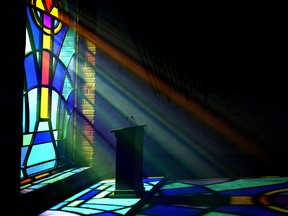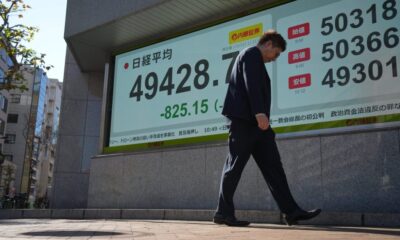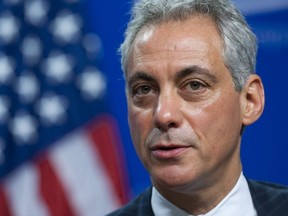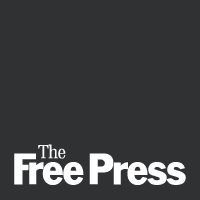World
Canada Enforces Sanctions Against North Korea through Air Patrols
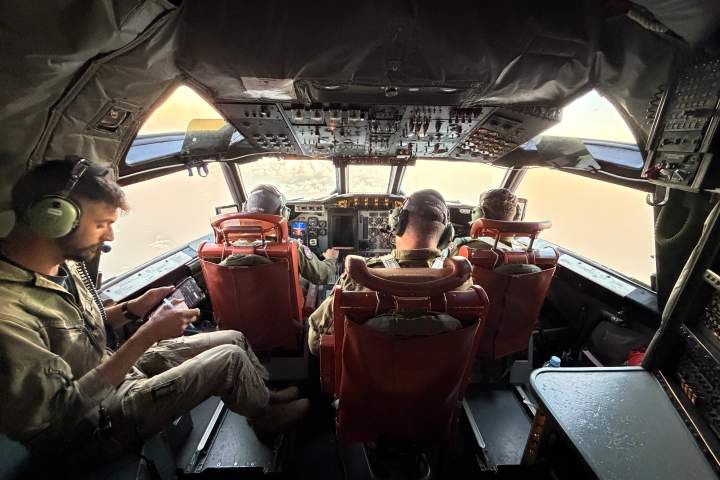
The Royal Canadian Air Force (RCAF) is actively enforcing sanctions against North Korea’s nuclear weapons program through regular aerial patrols. Based in Okinawa, Japan, a team of approximately 15 personnel boards the aging CP-140 Aurora aircraft several times a week. Their mission involves monitoring the waters surrounding North Korea to deter illegal maritime shipments that support the regime’s nuclear ambitions.
The significance of these patrols comes at a time when experts warn that North Korean leader Kim Jong Un is in a notably strong position. The regime has been receiving crucial resources through clandestine maritime activities, which sustain its ruling authority and advance its nuclear capabilities.
During a recent patrol, Global News observed the Aurora, a platform that has been in service since the 1980s. Despite its age, the aircraft has been retrofitted with advanced surveillance technology, including modern cameras and radar systems. These tools are essential for identifying suspicious vessels in a region that encompasses some of the world’s busiest shipping routes.
Brig.-Gen. Jeff Davis, Deputy Commander of Force Generation at 1 Canadian Air Division in Winnipeg, emphasized the importance of the intelligence gathered during these missions. “The information that we’re gathering on a day-to-day basis is super important for the allies to interpret, in order to enforce those sanctions,” he stated. Davis, who has logged nearly 3,300 hours flying the Aurora, highlighted the multifaceted approach of data collection—from visual observations to radar tracking.
As the Aurora ascended to its cruising altitude of around 1,500 meters, the crew diligently monitored the vast expanses of the East China and Yellow Seas. These areas present challenges due to the sheer volume of maritime traffic, with hundreds of vessels potentially complicating detection efforts. Captain Monticia Michael, the flight’s tactical commander, noted that suspect vessels often disguise themselves among legitimate traffic, using various tactics to evade detection.
The operation is part of Operation Neon, Canada’s commitment to a multinational coalition that includes countries such as Australia, France, and the United States. The Canadian team often receives intelligence regarding specific suspect vessels, allowing them to focus their surveillance efforts more effectively. During a nearly nine-hour flight, the crew identified several vessels suspected of transferring supplies to North Korea. Each time, they decreased altitude to capture detailed photographs and record the ships’ activities.
Captain Dominick Knerr, one of the pilots from Montreal, reflected on the unique nature of their mission: “This platform is typically used for anti-submarine warfare. So we’re actually using this aircraft for something different, which is intelligence gathering.” The information collected is then relayed to higher command for analysis, contributing to the broader effort to uphold international sanctions against North Korea.
Recent geopolitical shifts have made the enforcement of these sanctions more complicated. Russia’s influence has grown, particularly following its veto of the renewal of a United Nations panel responsible for investigating violations of sanctions against North Korea. According to Christopher Green, a senior consultant for the Korean Peninsula at the International Crisis Group, “Changes in the international system, geopolitical shifts have worked in North Korea’s favour to undermine the sanctions regime.”
The relationship between North Korea and Russian President Vladimir Putin has strengthened, with North Korea supporting Russia in its war in Ukraine, while receiving assistance in evading sanctions. Reports indicate that Russia has supplied North Korea with over a million barrels of oil since March 2024, along with advanced military technologies.
This bolstered relationship has given North Korea a sense of security that could lead to more aggressive actions. Jonathan Corrado, policy director at The Korea Society, warned that Kim Jong Un’s confidence in his position could lead to destabilizing behaviours that affect regional security dynamics for years to come.
The RCAF patrols, however, are not without risks. The Canadian crew has encountered challenges posed by Chinese military jets, which have intercepted their aircraft on multiple occasions. Brig.-Gen. Davis confirmed that these encounters have become a regular occurrence, with Chinese fighter jets closely shadowing the Aurora during flights over the East China Sea.
The complexities of enforcing sanctions against North Korea are further exacerbated by China’s support of the regime, which has consistently worked to block new sanctions at the UN Security Council. Observers note that without China’s backing, North Korea would struggle to maintain its current level of defiance against international sanctions.
The situation remains precarious, and as the RCAF continues its critical mission, the implications of their findings could play a significant role in shaping international responses to North Korea’s expanding nuclear ambitions.
-

 Politics4 weeks ago
Politics4 weeks agoSecwepemc First Nation Seeks Aboriginal Title Over Kamloops Area
-

 World5 months ago
World5 months agoScientists Unearth Ancient Antarctic Ice to Unlock Climate Secrets
-

 Entertainment5 months ago
Entertainment5 months agoTrump and McCormick to Announce $70 Billion Energy Investments
-

 Science5 months ago
Science5 months agoFour Astronauts Return to Earth After International Space Station Mission
-

 Lifestyle5 months ago
Lifestyle5 months agoTransLink Launches Food Truck Program to Boost Revenue in Vancouver
-

 Technology3 months ago
Technology3 months agoApple Notes Enhances Functionality with Markdown Support in macOS 26
-

 Lifestyle3 months ago
Lifestyle3 months agoManitoba’s Burger Champion Shines Again Amid Dining Innovations
-

 Top Stories2 months ago
Top Stories2 months agoUrgent Update: Fatal Crash on Highway 99 Claims Life of Pitt Meadows Man
-

 Politics4 months ago
Politics4 months agoUkrainian Tennis Star Elina Svitolina Faces Death Threats Online
-

 Sports5 months ago
Sports5 months agoSearch Underway for Missing Hunter Amid Hokkaido Bear Emergency
-

 Politics5 months ago
Politics5 months agoCarney Engages First Nations Leaders at Development Law Summit
-

 Technology5 months ago
Technology5 months agoFrosthaven Launches Early Access on July 31, 2025

